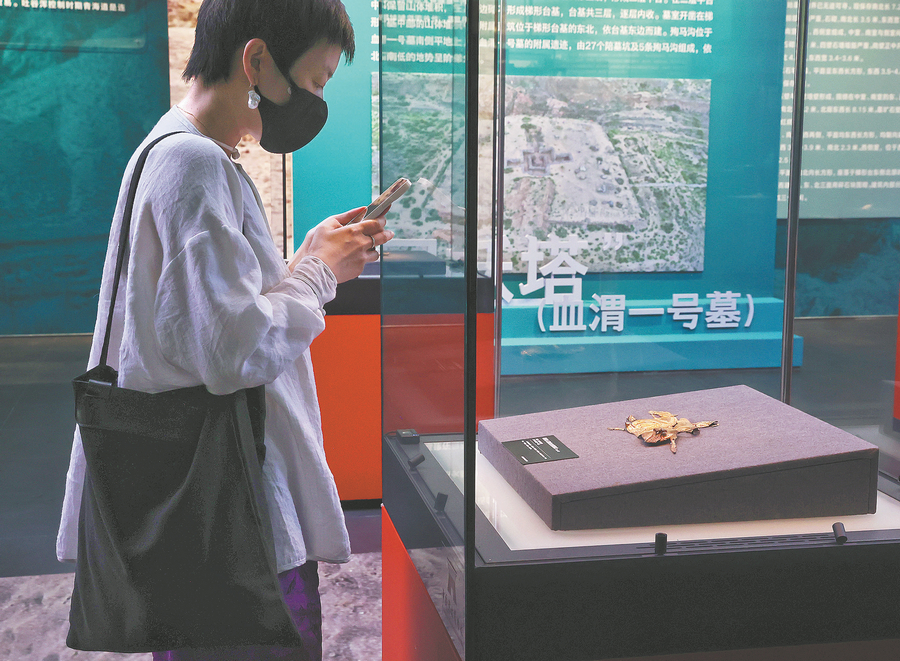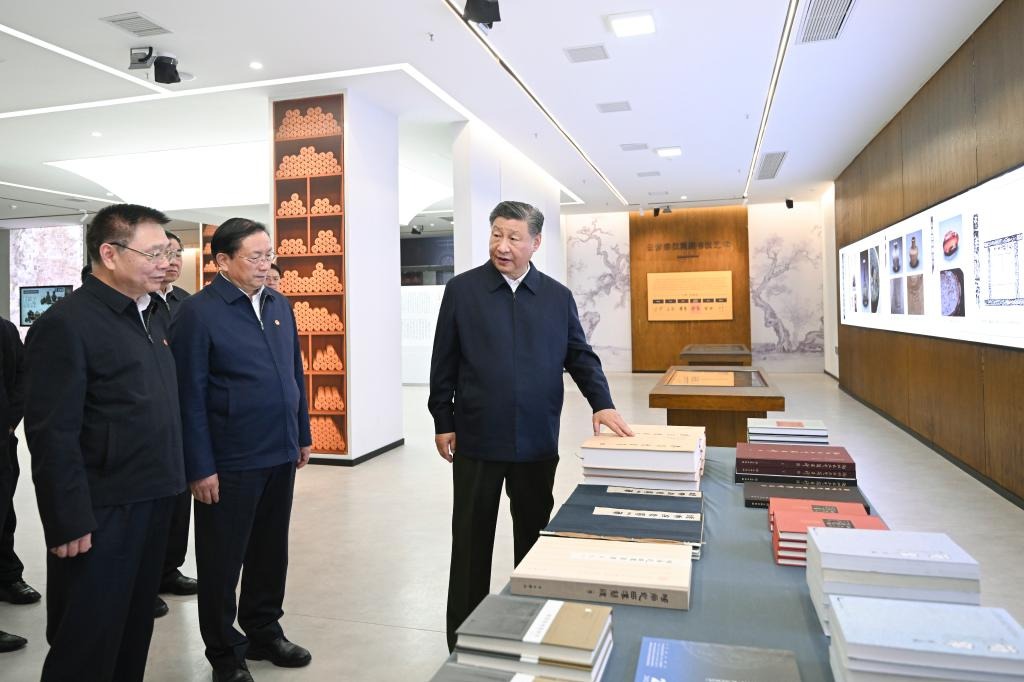Ghost stories


Relic collection from renowned tomb cluster on Qinghai-Tibet Plateau tells tales of cross-border communication and exchange of ideas, Yang Feiyue reports.
Many Chinese are no strangers to the "nine-story tower haunted by ghosts", thanks mostly to an eponymous online novel that has, in turn, inspired popular screen adaptations.
In reality, the inspiration for the haunted tower lies in the Reshui graveyard in Dulan county, Haixi Mongolian and Tibetan autonomous prefecture, Northwest China's Qinghai province.
In late September, a rich collection of relics from the well-known tomb cluster site on the Qinghai-Tibet Plateau was unveiled before the public at the Chinese Archaeological Museum in Beijing. It aims to provide a vivid picture of the historical events that took place around the site, where about 300 tombs dating back to between the 6th and 8th centuries have been found.
The exhibition was hosted by the Chinese Archaeological Museum, the Qinghai cultural heritage administration and the Haixi prefecture government, and is scheduled to last for half a year.
"The nine-story tower haunted by ghosts has become widely known through art and literature, but understanding its history, how various ethnic groups interacted and blended together on the Qinghai-Tibet Plateau during the middle of the Tang Dynasty (618-907), and how the Qinghai route connected China and the world, all require archaeological work," says Li Guoqiang, deputy director of the Chinese Academy of History.
The cultural relics of the exhibition are part of the archaeological findings made over the years.
They range from wooden strips bearing Tibetan words, gold items and silk pieces to lacquerware, turquoise items and crystals that were discovered in the Xuewei No 1 Tomb. This is so far the most complete ancient tomb ever excavated on the Qinghai-Tibet Plateau, according to the archaeologists working at the site.
























